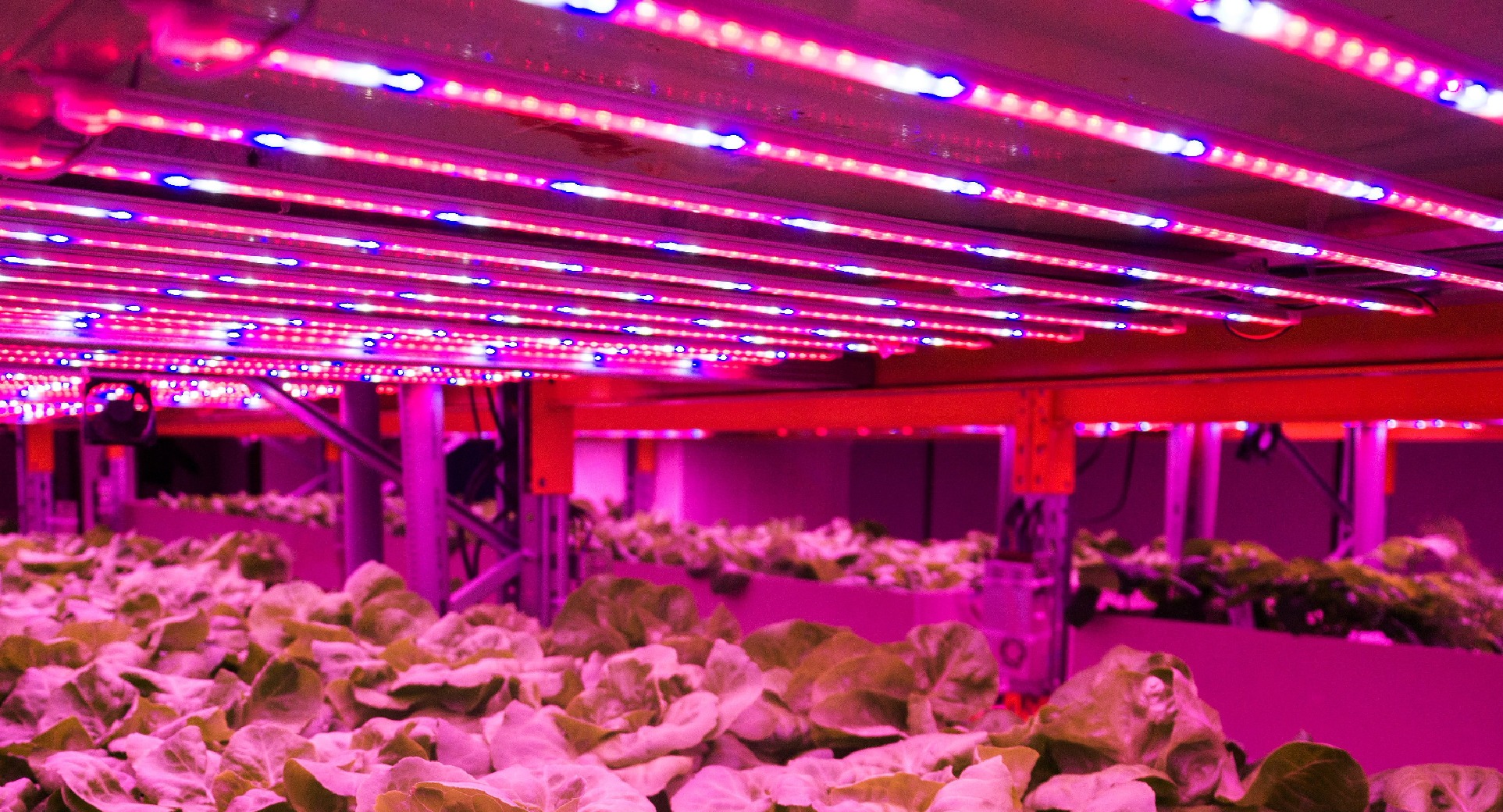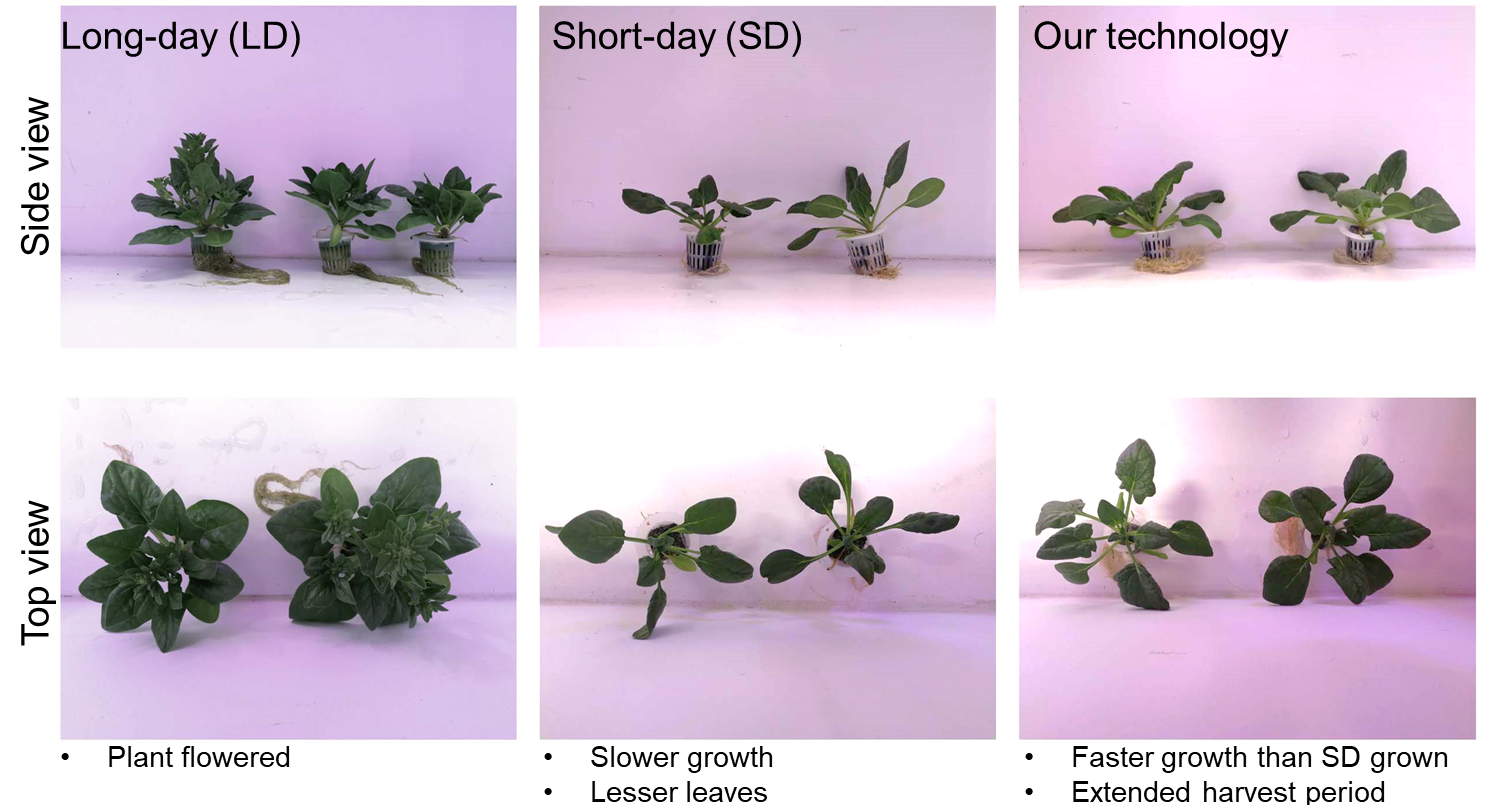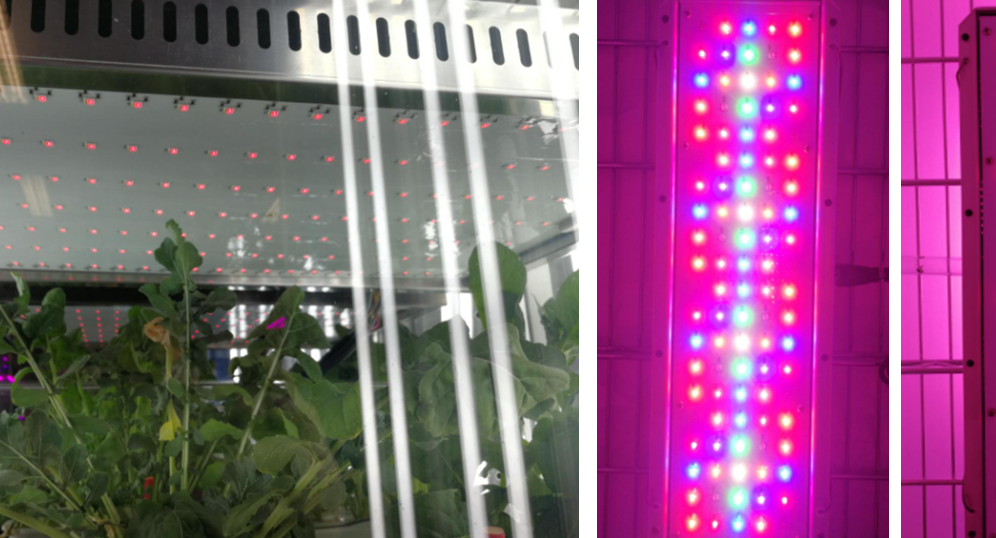Extension of Crop Harvest Period Through Customised LED Light Recipes



KEY INFORMATION
Sustainability - Food Security
TECHNOLOGY OVERVIEW
The majority of the local indoor farmers grow crops that are harvested for their leaves. One way to increase the growth rate of such leafy greens is to provide a longer period of light. However, some of the crops grown, e.g., spinach, are long-day plants that flower when the light periods are longer than their critical day-length. While important to a plant’s life cycle, this vegetative to reproductive phase change is undesirable for farmers, not only because it shortens the harvest period hence reducing the yield, but also because it changes the taste profile. To tackle this problem, a light recipe that was able to suppress flowering was formulated. Plants grown under this light recipe showed a faster growth rate than those grown under flowering-suppressing short-day photoperiod. Moreover, they do not flower even when the light period has surpassed the critical day-length. Positive results were obtained when this light recipe was tested on spinach and arugula. This technology would work for other long-day crops, and it will be beneficial to indoor farmers who are interested to try it.
TECHNOLOGY FEATURES & SPECIFICATIONS
The technology uses lights of different wavelengths to control the molecular switches, the phytochromes, of plants. It tricks the plant into suppressing its floral transition even when the long-day photoperiod is conducive for flowering. This is an improvement compared to the usual method of just providing short-day photoperiod to suppress flowering as the growth rate is now faster. This is particularly useful for crops, such as spinach and arugula, that can be harvested multiple times. With this extended harvest period, growers can have more cycles of continuous harvest within one batch of plant growth, thus increasing their yield. No additional chemical or Genetically Modified Organisms (GMO) are used to achieve this flowering repression.
POTENTIAL APPLICATIONS
This LED light recipe is suitable for:
- Farmers who are looking to improve and increase crop yields
- Indoor farms that use LED lightings
Lighting developers or producers can be potential partners to provide this technology as a package.
Unique Value Proposition
Customer benefits include -
- Increased yield through:
- The extended harvest period for crops that supports continuous harvesting
- Overall reduction of waiting time for plant establishment during lag phase
- Customizable recipes to suit different crop types
We have completed the current proof-of-concept stage and are looking for project collaborators or consultancy projects to test the technology on the client’s crop choice.
